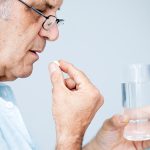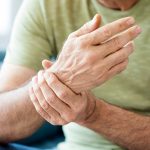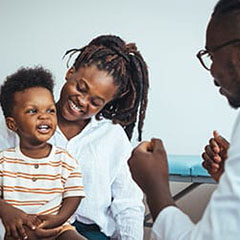-
June 30: The Week in Cancer News
Childhood cancer survivors have a higher risk of developing depression and anxiety, and study links polycystic ovary syndrome to higher ovarian cancer risk for postmenopausal women.
by Thomas Celona
-
Sunscreen Is Just the Start
Experts say protection against UV rays and watching for changes in your skin are important tools in skin cancer risk prevention.
by Kyle Bagenstose
-
June 23: The Week in Cancer News
New treatments have changed care for multiple myeloma, and as drug companies have moved away from producing generics, the U.S. runs into cancer drug shortages.
by Eric Fitzsimmons
-
June 16: The Week in Cancer News
Women diagnosed with early-stage breast cancer are more likely to live five years or longer compared with those diagnosed in earlier decades, and reports of functional limitations increase among cancer survivors.
by Marci A. Landsmann
-
Cancer Effects on Caregivers and Work
Many stop work or cut hours to care for a loved one with cancer, adding to their financial strain.
by Karon Warren
-
June 9: The Week in Cancer News
Daily pill lowers lung cancer death rate, and FDA authorizes importing shortage-affected cancer drugs from China.
by Kevin McLaughlin
-
Sex and Gender Minorities Face Disparities in Breast Cancer Care
Lesbians, bisexual women and transgender men had a longer wait for diagnosis and a higher risk of recurrence.
by Jon Kelvey
-
June 2: The Week in Cancer News
Minimally invasive surgery found to be effective for pancreatic cancer patients, and drug shortages begin to impact some cancer treatments.
by Thomas Celona
-
May 26: The Week in Cancer News
High cancer death rates in Native Hawaiian and Pacific Islander communities, and thousands of people lose Medicaid for procedural reasons.
by Eric Fitzsimmons
-
Deconstructing Peripheral Neuropathy and Chemo Brain
Researchers explore mechanisms of chemotherapy-related neurotoxicity at the AACR Annual Meeting 2023.
by Marci A. Landsmann
Cancer Talk
Many People Don’t Get Colonoscopy After Receiving Abnormal Blood Tests
About half of people who receive abnormal results from colorectal cancer screening tests don’t follow up with a colonoscopy.
by Laura Gesualdi Gilmore
Can Steroids Impair Immunotherapy for Cancer?A new study suggests steroids could blunt the effects of some immunotherapies, but researchers say they remain necessary for some patients.
by Kyle Bagenstose
Treatment Combination Improves Survival in Platinum-resistant Ovarian CancerPreliminary results found that combining relacorilant with nab-paclitaxel improved outcomes for women with advanced ovarian cancer.
by Sandra Gordon
CAR T-cell Therapy Shows Response in Rare Brain CancerPotential new approach to treating diffuse intrinsic pontine glioma uses engineered immune cells infused directly to the brain.
by Taneia Surles














